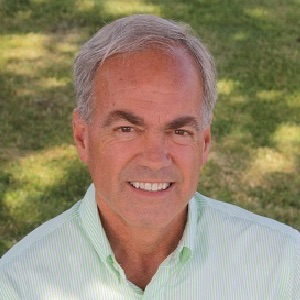Energy scams! – Another generation of theft
By Todd Munsey

Todd Munsey
It’s not enough of a challenge for electric and gas utilities to educate and encourage our consumers in the ways of energy efficiency and conservation, but combatting a never-ending stream of scammers is now a regular part of our communication efforts.
Unlike normal every day scammers preying on all consumers, utilities don’t necessarily deal with identity thieves. They are more interested in the money. Post cards invite couples to a free steak dinner. Phone callers insist consumers will be disconnected if credit card information is not shared. Consumers are directed to purchase and send a pre-paid debit card to satisfy a “past-due” debt. Some third party solar contractors require down payments, only to leave town without a trace. Commercial businesses are targeted on busy Friday evenings, and the callers and calling systems are very convincing.
While the new wave of scammers is emerging, utility personnel still deal with the miracle fireplace heaters, “energy saving” electric resistance space heaters, black boxes and a host of other creative, and typically too-good-to-be-true products. One of my favorites is the 1,000 watt electric parabolic heater, claiming to cost one-third less to operate than typical (1,500 watt) space heaters.
Most are intentional, and yet inadvertently, some consumers have even called an incorrect “800” number, assuming they are reaching the utility, only to hear that they have won a free gift card or trip. Demanding the “prize” from the utility makes for an interesting, and always awkward conversation.
One industry colleague recently shared that when he actually contacted a scammer, the response he received was, “Ya, we’re trying to get your customer’s money. What are you going to do about it?”
Unfortunately, from a law enforcement perspective, there isn’t much that can be done to apprehend these folks. For starters, they’re not high on the priority list, they rarely have the staff to devote to the issue and typically the scammers cover their tracks very well.
So what solutions do we have to offer? Communication is the key. The hope is that we can alert our consumers before they are “taken.” Having consumers contact the utility immediately, share their experience on social media and telling friends and family is crucial. Press releases, statement messages, web sites and perhaps most importantly, educating our customer service representatives can go a long ways in addressing the problem.
In other words, work as hard as we already do in promoting energy efficiency and conservation. They aren’t going away, so we need to be just as creative and proactive in sharing the rest of our side of the story.
Todd Munsey is the member services director for Douglas Electric Cooperative that serves over 9,600 members in northwest Douglas County. For energy efficiency and conservation tips, got to www.dec.coop.
For tips and other ways to save and produce energy, visit dcsmartenergy.org. Douglas County Smart Energy is a project of the Douglas County Global Warming Coalition. For more information about the coalition, call 541-672-9819 or find them on Facebook at Douglas County Global Warming Coalition.